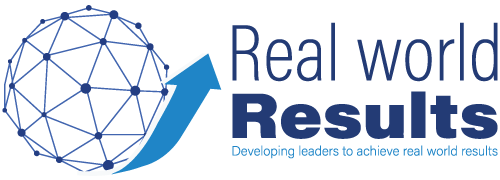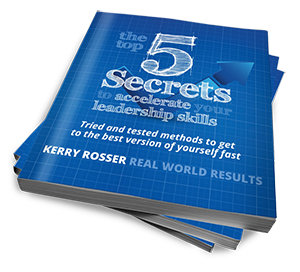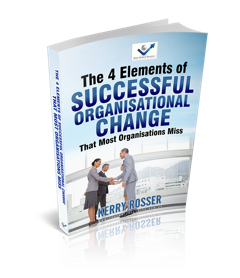Change – managing corporate change is part of everyone’s role these days, even if you don’t have the title of Change Manager.
A very close friend of mine recently changed jobs and companies, and although she was happy to be in her new role, each time I spoke to her, she sounded ‘out of sorts’ and very uncomfortable. Her explanation was that she hated not knowing the intricacies of the new role and felt at ‘risk’. When I reflected on how she described her other transitions in the past, I realised there is a pattern. During times of change we tend to question ourselves – and those questions often trigger a physical and emotional immune response.
Change creates a physical and emotional reaction, even if the changes are for good. Unpacking this phenomenon and then researching why change has these impacts … I realised that adults have a need to avoid loss – a loss of perceived competence, a loss of the known and familiar.
There are a few models of change out there, and we could read the books and do the courses, and still find it difficult to figure out how to implement the changes in the most effective and efficient ways.
If you think about what motivates us as human beings, it boils down to staying safe and finding pleasure, avoiding discomfort and striving for safety. One of the often overlooked issues in any change is what a person or people might lose, what might create a feeling of not safe … or avoiding loss.
As adults we crave and treasure competence and relying on our acquired skills and knowledge knowing what to do. When any change is predicted or occurring, our sense of competence and capability falls into question. Even if, on a logic level we know that we will be capable and able to learn – the sense of loss creates an emotional reaction, and a desire to resist the changes in
order to preserve the status quo.
In their research on Change – Professors Robert Kegan and Lisa Laskow Lahey of Harvard University, they liken these innate responses to the body’s immune system. The immune systems major function being to repel threats and keep the human body healthy. Fighting any real or perceived threat 24/7 and often without us even being conscious of it happening. All good and important things.
If this auto- immune response is so sub conscious then our awareness is low or non existent of it even occurring. When the immune response activates for real or perceived change – we are rarely even aware of our defence systems being activated, let alone any conscious analysis to determine if it is necessary or a good use of energy and focus.
Logic and rationality is only possible when we become conscious of the immune like reaction that our bodies have to change. When we are able to dissect the reaction and reasons for it, we can that start to apply some analysis and rational thinking – it might be to validate the fear reaction or dispute it with evidence and allocating appropriate proportion to it.
Kegan & Lahey have developed a framework that enables a person or groups to work through and determine what underlies the change reactions, validating and honouring the losses in a way that enables our logical and conscious mind make some decisions about appropriate responses to the change.
Although this process can be one of pure self reflection and completed independently, being guided through the process and framework by a third party, (such as a well trained facilitator) enables the conscious and subconscious fully engage in the exploration process. It’s one of the aspects of coaching that I have enjoyed over the years and have received great feedback from coaches at all levels of the organisation.
If you want to discuss this further, please contact us.


 Subscribe to our mailing list to unlock the download link for our free e-book The 4 Elements of Successful Organisational Change That Most Organisations Miss.
Subscribe to our mailing list to unlock the download link for our free e-book The 4 Elements of Successful Organisational Change That Most Organisations Miss.